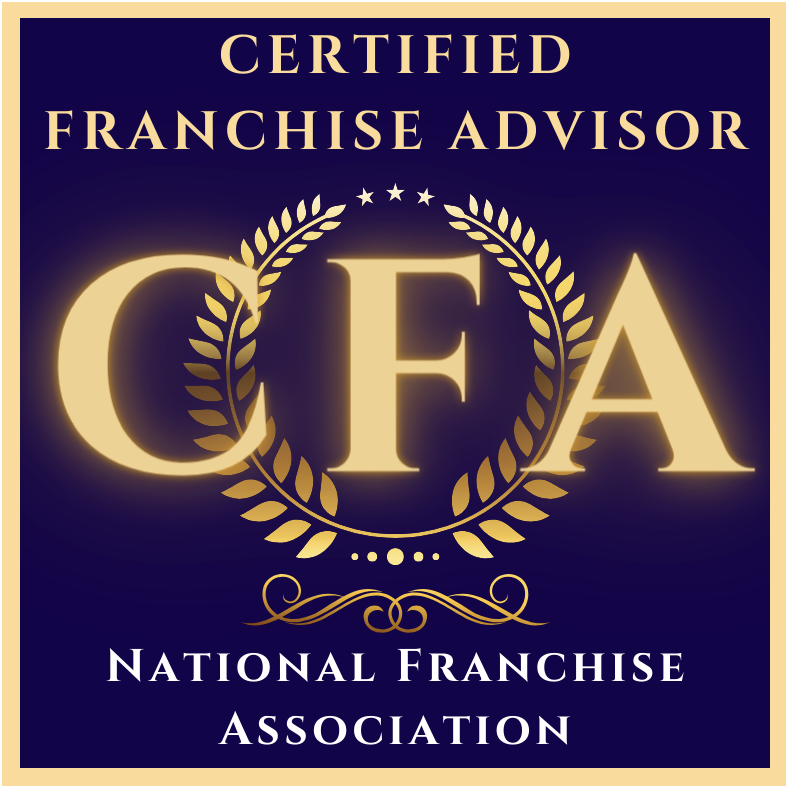What is Franchising?
Turn Your Entrepreneurial Dream into a Rewarding Career.
What is franchise? A franchise, also known as franchising, is a method of product or service distribution in which a franchisor creates the brand’s trade name and trademark as well as the business system, and a franchisee pays a franchisee an initial fee and a royalty in exchange for the right to operate under the franchisor’s name and system. Although the term “franchise” technically refers to the agreement between the two parties, it is more frequently used to describe the real company that the franchisee owns and runs. The term “franchising” is most commonly used to describe the process of developing and implementing a franchise system and brand.
Two categories of franchising arrangements exist. Corporate Layout The most recognizable type is franchising. In a business format franchise, the franchisor offers the franchisee the whole operating system for the business in addition to its trade name, goods, and services.
In general, the franchisor provides the franchisee with assistance with site selection and development, operation manuals, training, brand standards, quality control, a marketing plan, and business consulting support. Traditional or product distribution franchising has higher overall sales than business model franchising, but being less commonly associated with it. Instances of conventional or product distribution franchising can be observed in the manufacturing sectors of bottling, petroleum, automotive, and other related fields.
Franchising Explained

A lot of people think they understand what franchising is all about. But are you truly aware of what franchising entails? Could you explain what it is? (And no, blaming fast food restaurants is not relevant.)
A franchise is described as “the right or license granted to an individual or group to market a company’s goods or services in a particular territory” by Merriam-Webster in the context of business. Although it’s a reasonable definition, many of the subtleties of franchising aren’t really covered.
Further information is provided by the International Franchise Association (IFA), which defines a franchise as follows:
A franchisee is a party to a contract that binds them together and provides them with ongoing support in areas like training and know-how for their business. They also operate under a common trade name, format, or procedure that is owned or controlled by the franchisor, and the franchisee has made or plans to make a sizable capital investment in their company out of their own funds.
Difference Between Franchisor and Franchisee

Franchisor
Depending on the particular company plan and the franchise agreement, the franchisor’s role will change. Above all, the franchisor provides the franchisee with an excellent chance to manage their own company without the typical dangers associated with independent companies.
Common duties of a franchisor include the following:
- Enabling the franchisee to offer services under the company's name
- Giving preliminary instruction on how to expand the company and carry out daily tasks in accordance with their tested business plan
- Offers assistance and training on-site before, during, and after the grand opening day.
- Providing a list of authorized suppliers and distributors for the tools and supplies that are required
- Supplying promotional materials and marketing campaigns that work
- Supplying direction regarding established company procedures
Franchisee
The franchisee commits to represent the existing company once they sign the agreement and pay the initial franchising cost. Typically, franchisees are accountable for the following duties:
- Establishing the franchisor's enterprise in a well-known area and safeguarding the reputation of the brand
- Covering a range of startup fees for their business
- Spending time learning about the guidelines and procedures of the company
- Closely adhering to operational and business policies and processes
- Utilizing trademark usage standards in accordance with the business marketing plan
Both the franchisor and the franchisee can profit from a flourishing firm as long as they both fulfill their obligations and fulfill the responsibilities stated in the franchise agreement.
Types of Franchises
There are two main types of franchising, which is why it’s sometimes called a “hybrid” business model.
Product Distribution Franchises
Traditional franchising, sometimes referred to as product distribution franchising, is a business model in which the franchisor gives the franchisee the authority to purchase its goods and use its trademark. This usually links a network of wholesalers with a single producer.
Let’s say, for instance, that you are a car dealer who wants to sell Jeep cars. If so, selling Jeep vehicles requires a product distribution agreement, which also grants you permission to use the Jeep trademark for marketing and promotions.
Company Structure Franchising
Business format franchising is a contract in which the franchisor provides the franchisee with startup support, advertising, and training. The majority of the franchisor’s income under this franchise model comes from royalties and fees.
For instance, you would sign a business format agreement if you wanted to operate a McDonald’s.
McDonald’s will help you get off the ground by training you for weeks, assisting you in choosing where to build your location, providing you with the necessary supply chain contacts, and offering you guidance once your franchise opens, all after you’ve paid an initial fee and signed a contract known as a franchise agreement.
Therefore, there are advantages and disadvantages to both product distribution and business-formatted franchising agreements.

One of the most important choices you’ll make as a business owner is selecting the franchise brand to invest in, if your objective is to buy a franchise. It’s important to look for a company that complements your personality and way of life in addition to one with a solid track record. Knowing what to look for when assessing possible franchises is the first step. Here are some crucial points to think about:
Franchise Fees
One-time costs associated with buying a franchise are known as franchise fees. These costs, which can vary from $10,000 to $100,000, cover the cost of the rights to utilize the franchisor’s name, policies, and any systems that it may have created. In order to help the franchisee with the opening of their franchise, the franchisor also uses it to pay for opening assistance and training expenses. When a franchise is awarded, franchisors commonly demand an upfront fee from its franchisees. In addition, supply chain problems, inflation, rising equipment costs, and leasehold upgrades across brands could result in post-Covid initial “turnkey” investments being larger than in the past.
Royalty Fees
The amount of money you pay to the franchisor on a regular basis (often as a % of gross sales) in exchange for the right to use their brand name and for continuous assistance like marketing and creating new goods or services for the franchisee is known as a royalty fee. You must pay royalties as a franchisee, which are deducted from your sales. Depending on sales, this proportion might be constant or change on a sliding basis.
Term Length
The length of the franchise term may be a reliable predictor of the franchisor’s level of franchisee support. Franchise brands often have terms of ten years or fewer, depending on the type of franchise—home-based vs. retail.
This implies that there is an ample amount of time for the franchisor and franchisee to collaborate and establish a strong rapport. However, it also implies that in the event that things doesn’t work out, the franchisee might not be permitted to keep the company. When a franchise agreement expires, the franchisor may choose to terminate the franchise before its entire term if the franchisee is not performing up to par. The franchisee would have to close the business in that scenario.
A franchisee may frequently be required by contract to refrain from operating a comparable business for a set amount of time within a specific radius of their initial site. We refer to this as a non-compete agreement.
Key Factors of Selling a Franchise Business
Selling a franchise involves more work than selling a stand-alone company. As odd as it may sound, the moment you buy a franchise, you should begin the process of selling it. When the time comes to sell your franchise, you have three options: sell it yourself, contract out the sale, or work with a broker. Before selling a franchise, there are a few things you need think about regardless of the strategy.
Determine the Value of Your Business
When selling a franchise, one of the most key factors to take into account is its business value. By analyzing the market, appraising all of your assets, checking your financial records, and taking other aspects of your company into account, a business valuation specialist may assist you in establishing the fair market value of your enterprise. Utilizing an expert to assess your company’s worth has the best effect of reducing the likelihood that a potential buyer will haggle over the asking price.
Prepare Your Business for Sale
Make your company stand out from the competition by improving its operational, financial, and aesthetic features. This will help you attract more franchise sellers. Retail areas should be painted, cleaned, and any broken items should be fixed. Maintain maximum profitability for your company by controlling expenses and increasing revenue. To increase the performance of your firm, evaluate your processes, operations, and procedures, inventory management, customer service, and staff engagement.
Establish the Reason for Selling
Be ready to respond to inquiries about the reasons behind your business sale. The business wasn’t a good fit for you, you are a business flipper, you are retiring, or you have another business opportunity, among other possible explanations.
Get in Touch with the Suppliers, Franchisor
You should notify suppliers, the lessor (if you’re leasing), and the franchisor before listing your franchise for sale. You will have to abide by their terms and conditions in order to sell your company. Respecting each party and giving them the assurance that their needs will be met even after the deal is final are vital.
Choose the Correct Time
Time is of the essence when selling a franchise. When you have a wide range of possibilities, it’s the greatest time to close the deal. Don’t wait till your company has a downtown if you want to receive a decent price for your franchise. When your company is doing well, it is ideal to proceed with the sale. A franchise deal often takes twelve weeks or longer to finalize. The planning required to sell a franchise takes even longer. As a result, when planning your marketing budget and the date of your sale, keep this time frame in mind.
FAQs Related to Franchising
What is franchising in business?
Franchising is a business model where an individual operates their own location of a larger, more established company. The owner of the product, service, or method, called the franchisor, grants the franchisee the right to do business under their trademark or trade name. The franchisee pays an initial fee and agrees to pay the franchisor a certain percentage of revenue. In exchange, the franchisee can use the franchisor’s name, logo, and guidance.
How does franchising work?
Franchising is a contractual agreement between a franchisor and a franchisee that allows the franchisee to operate a business using the franchisor’s business model, products, and services. The franchisee pays a fee to acquire the rights to use the franchisor’s name and system, and typically also pays annual licensing fees. In exchange, the franchisee owns and operates the business under the franchisor’s brand name, logo, and other assets.
How to start a franchise?
1) Choose the company you wish to collaborate with.
2) Examine the rivals and the present owners.
3) Ascertain the interest of the market.
4) Examine the initial expenses
5) Draft a plan of business.
6) Establish a corporation or LLC.
7) Select a place.
8) Draft a plan for marketing.
Final Thoughts
Franchisees who are aware of these challenges and take proactive measures to overcome them have a higher chance of success, even if there are a number of reasons why do franchises fail? Franchisees can reduce risks and position themselves for long-term growth and profitability by obtaining relevant experience, obtaining sufficient funding, choosing ideal locations, putting effective marketing strategies into practice, cultivating strong relationships with the franchisor, requesting and making use of available support, and remaining flexible in a changing market.
For more information, call or schedule a meeting below.
- Michael G. Bullinger, MBA, CFC, CFA
- President of the National Franchise Association
- call/text: 504-345-1170 or 484-467-4869
- mike@nationalfranchiseassociation.com
- Schedule at: calendly.com/bullingermg/nfa
- https://nationalfranchiseassociation.com/






